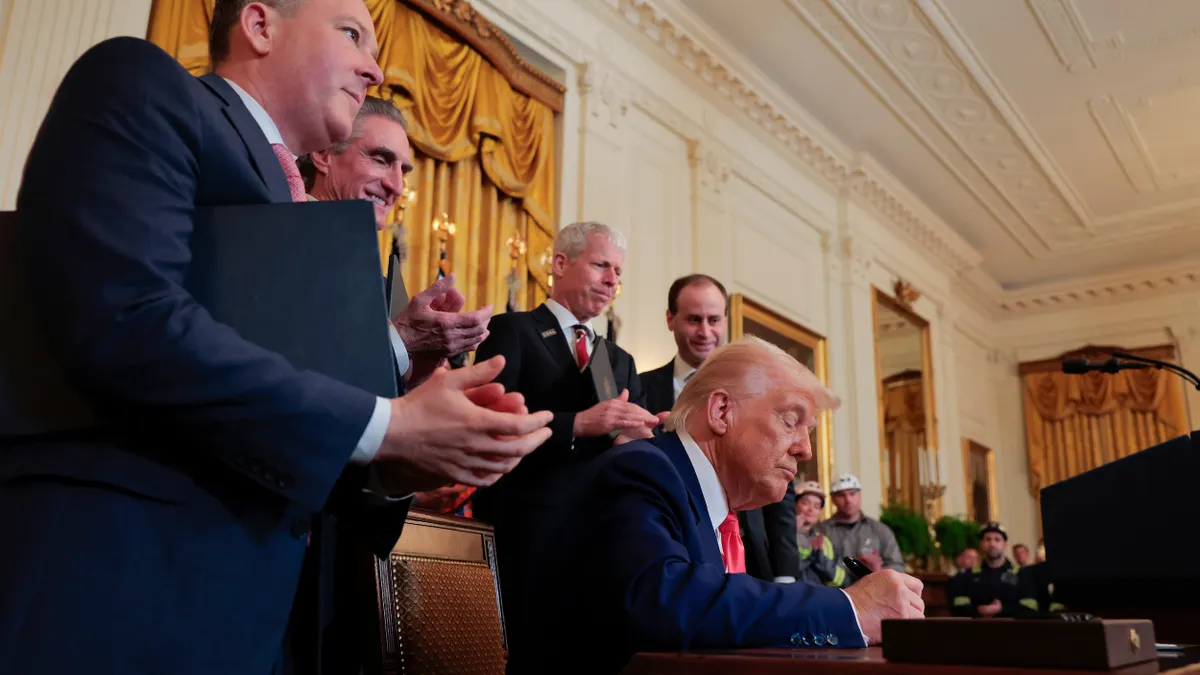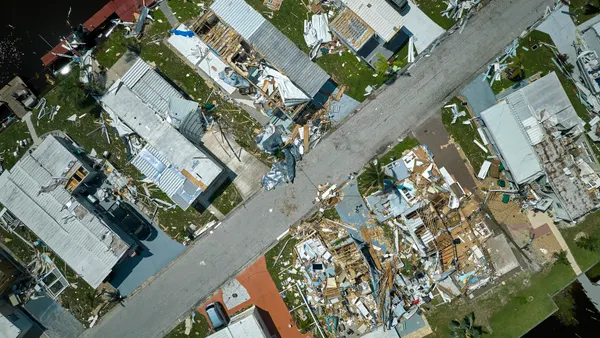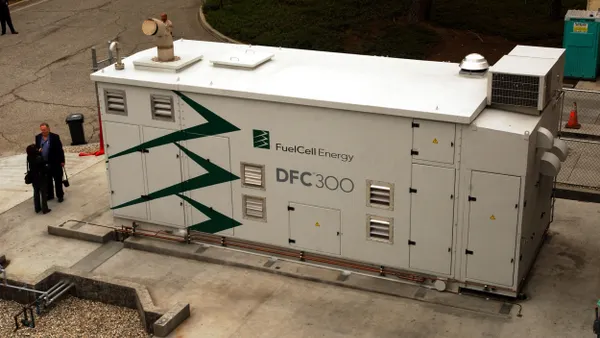Dive Brief:
-
The Environmental Protection Agency on Monday night asked the U.S. Court of Appeals for the D.C. Circuit to strike down stricter limits on fine particulate matter from vehicle exhaust pipes, power plants and factories that the Biden administration imposed last year.
- National Ambient Air Quality Standards PM2.5, which set limits on fine particulates measuring less than 2.5 micrometers in diameter, are “a cornerstone of the Clean Air Act,” according to an Environmental Defense Fund press release.
-
The EPA Press Office said in an emailed statement that the rule “was not based on the full analysis of available science that the statute requires” and would cost “hundreds of millions, if not billions of dollars to American citizens if allowed to be implemented.”
Dive Insight:
In February 2024, the EPA, under President Joe Biden, set new standards lowering the NAAQS, also known as the “soot standard,” from 12 micrograms to 9 micrograms per cubic meter of air by 2032. The move was seen as a major piece of Biden’s commitment to advancing environmental justice.
The Biden-era EPA stated the stricter standards would result in public health benefits including prevention of up to 4,500 premature deaths, 800,000 asthma symptom cases and 290,000 lost workdays — amounting to net benefits of up to $46 billion — in 2032.
Republican attorneys general from 24 states and a coalition of industry organizations filed lawsuits with the U.S. Court of Appeals for the D.C. Circuit seeking to overturn the new standard in March 2024.
The National Association of Manufacturers said in a press release that complying with the stricter standard “would cost businesses and the U.S. economy huge sums, hampering company operations and job growth and forcing tough choices on states and towns nationwide.”
“This rule will drive jobs and investment out of Kentucky and overseas, leaving employers and hardworking families to pay the price,” Kentucky Attorney General Russell Coleman said in announcing the states’ lawsuit.
Yvonka Hall, executive director of the Northeast Ohio Black Health Coalition, said in a statement Tuesday that Black communities “already carry the burden of polluted air and higher rates of asthma and heart disease.” Weakening the soot standard “will only deepen these disparities and cost more Black lives,” she said.
Studies have found that Black communities are exposed to roughly 1.5 times more soot pollution than the overall population.
In March, as part of the Trump administration’s deregulation push, EPA Administrator Lee Zeldin said the agency would revisit the NAAQS, which he argued had “raised serious concerns from states across the country and served as a major obstacle to permitting.”
A coalition of 100 environmental justice and clean air advocates responded in April with a letter urging the EPA to maintain the stricter standard.
The EPA’s motion to vacate the standard, filed in response to the Republican state attorney generals’ 2024 lawsuit, said there is “no serious possibility” the agency would adopt the stricter soot standard and requested the court grant its motion to vacate it.
“This administration’s EPA has nothing to do with protecting people’s health, saving lives, or serving children, families, or communities,” Patrice Simms, vice president of healthy communities at nonprofit law firm Earthjustice, said in a statement Tuesday. “We will continue to defend this life-saving standard.”













